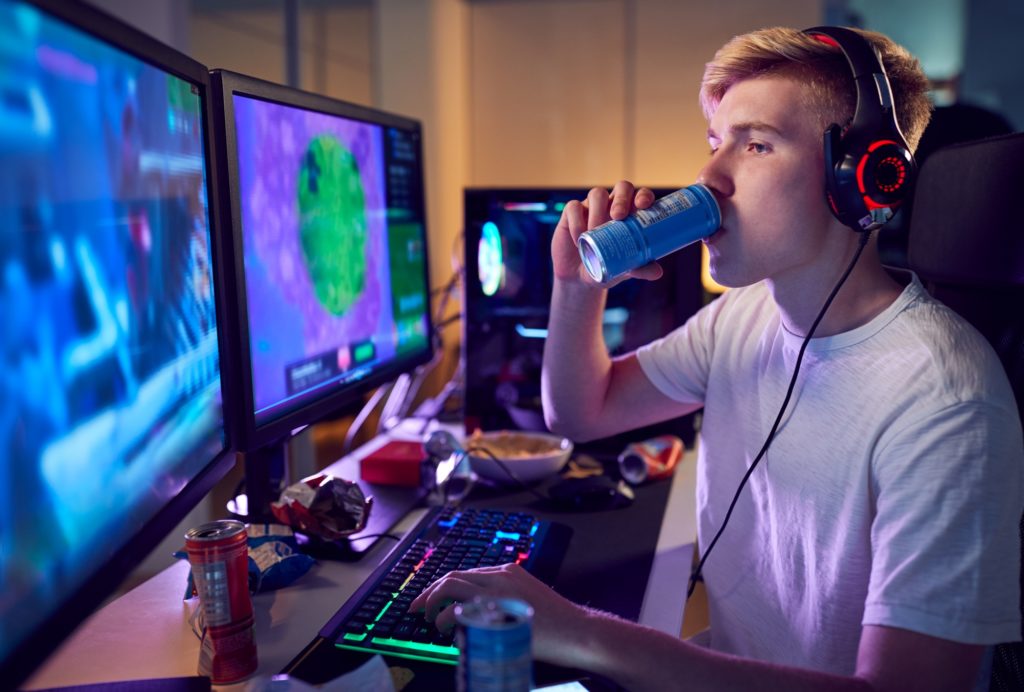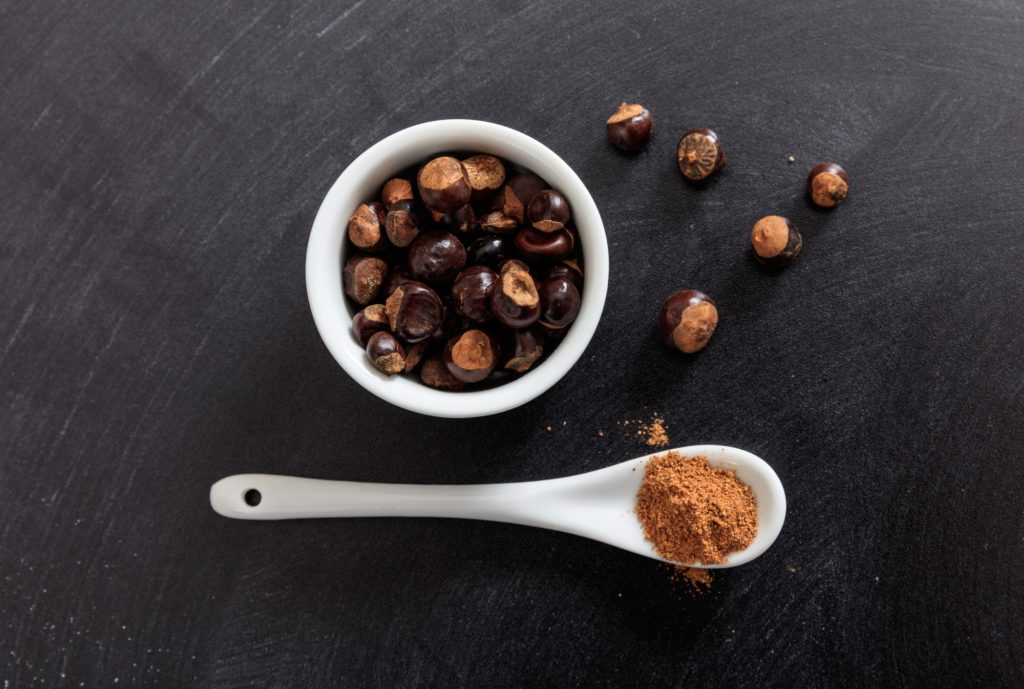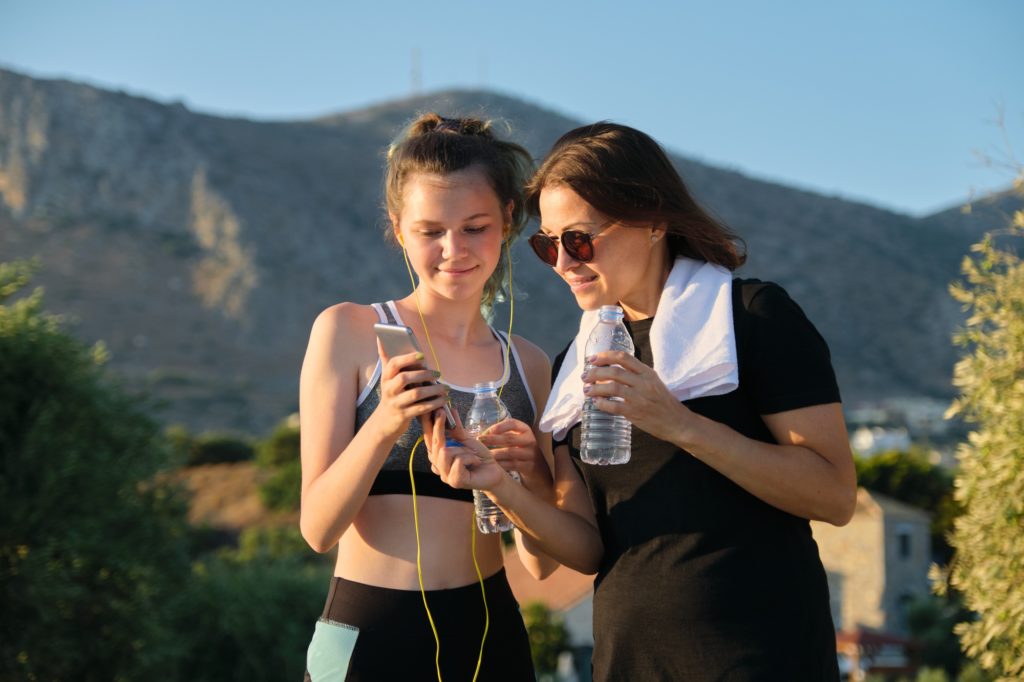Energy Drinks: Their Impact on Health and Potential Risks
Energy drinks, commonly known as “energy boosters,” have gained significant popularity in Ukraine in recent years, especially among young people and the military. However, their regular consumption can pose serious health risks, particularly negatively affecting the cardiovascular system.
Since the start of the war in Ukraine, energy drink sales have increased by nearly 50%. This surge is linked to high demand among military personnel, who use these drinks to maintain physical endurance and concentration. Approximately 340,000 liters of energy drinks are produced daily in Ukraine, amounting to about 10.2 million liters per month.

Bright packaging, candy-like flavor additives, wide availability, and targeted marketing contribute to their popularity. Many brands sponsor popular sports teams or collaborate with TikTok and YouTube influencers.
Recently, the Verkhovna Rada proposed banning the sale of energy drinks to minors. This step is crucial, as despite their advertised benefits, energy drinks can cause significant harm to the body, particularly affecting the cardiovascular and nervous systems.
The American Heart Association (AHA) raised concerns about the safety of energy drinks as early as 2019. This industry continues to grow rapidly, with the market value of energy drinks projected to reach $61 billion in 2021. Studies show that about 30% of teenagers aged 12–17 in the U.S. regularly consume these beverages. Among military personnel, nearly 45% reported drinking at least one energy drink per day, while 14% consumed three or more cans daily. The number of emergency room visits related to energy drink consumption increased from 10,068 in 2007 to 20,783 in 2011. Additionally, according to the FDA, 34 deaths linked to energy drinks have been recorded, prompting an investigation into their safety.
Composition of Energy Drinks
Energy drinks typically contain high concentrations of caffeine, significant amounts of sugar, and stimulants such as guarana, taurine, and L-carnitine. While they may temporarily enhance alertness and endurance, their effects on the body also include increased blood pressure, accelerated heart rate, and respiratory system impact.
Dangerous Ingredients
One of the most controversial components is guarana—a plant extract that contains a high concentration of caffeine (1 gram of guarana is equivalent to 40 mg of caffeine). The issue is that the amount of this additional caffeine is often not listed on the label, which can lead to overdose.

Are There Safe Caffeine Limits for Children?
According to the American Academy of Pediatrics, teenagers aged 12–18 should consume no more than 100 mg of caffeine per day. However, energy drinks can contain between 100 and 200 mg of caffeine per serving.
Potential Health Risks
Consuming large doses of caffeine can be dangerous for teenagers. Caffeine acts as a stimulant, increasing alertness, and when combined with the sugar found in energy drinks, it creates a so-called “energy explosion.” This stimulation can be accompanied by side effects such as rapid heartbeat, increased blood pressure, nervousness, and insomnia, followed by a sudden energy crash. Depending on the frequency of consumption, teenagers may develop a dependence on this state of excitement. Breaking this cycle can be difficult and may lead to withdrawal symptoms such as headaches or depressed mood. Additionally, these effects can be even more pronounced in teenagers with preexisting mental health conditions.

Beyond caffeine, energy drinks contain a significant amount of sugar, providing a short-term energy boost but lacking nutritional value. This can lead to sharp fluctuations in blood sugar levels and, in the long run, contribute to weight gain, an increased risk of obesity, and type 2 diabetes.
Regular consumption of energy drinks is also associated with an increased risk of cardiovascular diseases, including:
- Cardiac arrest
- Myocardial infarction
- Spontaneous coronary artery dissection
- Coronary vasospasm
Caffeine has a heightened inotropic effect on the left ventricle and causes vasoconstriction, leading to increased blood pressure. Excessive energy drink consumption also increases arterial stiffness, promotes the occurrence of supraventricular extrasystoles, and raises both diastolic and systolic blood pressure.
A study published in Frontiers in Cardiovascular Medicine examined the effects of energy drinks on blood pressure and heart rate in teenagers. It found that after consuming these beverages, systolic blood pressure increased by 5.23 mmHg, while diastolic pressure rose by 3.29 mmHg.
Research also demonstrates an increase in platelet aggregation, elevated systolic blood pressure (SBP), and prolonged QTc interval, which is a leading cause of sudden cardiac arrest linked to energy drink consumption. This also raises the risk of torsades de pointes—a potentially fatal ventricular arrhythmia.
Patients with a genetic predisposition to cardiac arrhythmias may be at an even higher risk of developing arrhythmias after consuming energy drinks. While such events are rare, sudden cardiac arrest (SCA) can still occur.
Patients with a genetic predisposition to cardiac arrhythmias may be at an even higher risk of developing arrhythmias after consuming energy drinks. While such events are rare, sudden cardiac arrest (SCA) can still occur.
The stimulating ingredients in energy drinks can induce a potentially proarrhythmic state by altering:
- Heart rate
- Blood pressure
- Cardiac contractility
- Cardiac repolarization
A study published in Heart Rhythm in June 2024 by cardiology researchers at the Mayo Clinic assessed the risk levels for patients consuming energy drinks. A retrospective analysis of over 5,000 patients identified cases of sudden cardiac arrest (SCA) due to confirmed arrhythmias requiring resuscitation, defibrillation, or both.

Another study found that among 144 individuals who survived sudden cardiac arrest, seven cases (5%) occurred without any apparent cause following energy drink consumption. Two patients had long QT syndrome, two had catecholaminergic polymorphic ventricular tachycardia, and three were diagnosed with idiopathic ventricular fibrillation. The average age of hospitalized patients (six women and one man) was 29 ± 8 years.
Three of the patients were regular consumers of energy drinks. Six (86%) required defibrillation, while one was resuscitated manually. All survivors discontinued energy drink consumption and have since experienced no further cardiac events.
There are no health benefits to consuming energy drinks. While the absolute risk of severe cardiac events is low, the relative risk for vulnerable individuals is significantly higher. For patients with long QT syndrome or any genetic heart conditions associated with sudden cardiac death, the only safe dose of high-caffeine energy drinks is zero. The risk simply isn’t worth it—especially when there is no proven benefit.
Psychological Effects
Chronic consumption of caffeinated energy drinks has been linked to panic attacks, psychotic episodes, hyperexcitability, and excessive stimulation of the cerebral cortex. Studies on energy drink consumption among students in grades 5–12 found that caffeine-containing energy drinks were associated with a 66% higher risk of developing attention and hyperactivity disorders compared to those who did not consume them. It is believed that energy drink consumption negatively affects brain development, potentially leading to insomnia, attention deficit hyperactivity disorder (ADHD), and cognitive impairments.
Who Is Most Vulnerable?
According to the U.S. National Institutes of Health (NIH), the largest consumers of energy drinks are men aged 18–34, while approximately one-third of teenagers aged 12–17 regularly consume these beverages.
In 2018, the American College of Sports Medicine (ACSM) published recommendations urging restricted energy drink consumption among children, teenagers, and individuals with cardiovascular diseases.
Long-Term Consequences
Long-term studies on the effects of energy drinks are still ongoing. However, current evidence suggests that regular consumption of high doses of caffeine can lead to hypertension, arrhythmia, and gradual weakening of the heart muscle.
Who Should Avoid Energy Drinks?
Experts strongly advise against energy drink consumption for individuals with:
- Irritable bowel syndrome (IBS)
- Panic attacks
- Gastroesophageal reflux disease (GERD)
- Epilepsy
- Heart disease or cardiac arrhythmias
Breaking the Cycle of Dependence
Teenagers can develop a dependence on caffeine, but there are safe ways to reduce its consumption. Parents should start with an open conversation with their children about why they consume caffeine. It is best to reduce caffeine intake gradually since sudden withdrawal can be unpleasant but is not harmful to health.
It is important to have an honest dialogue and not just focus on the negative aspects. Recognizing a child’s needs and explaining the long-term risks will help convey the importance of quitting energy drink consumption.

Conclusion
Overall, research indicates that excessive consumption of energy drinks can have serious negative health consequences for minors.
The quick energy boost provided by energy drinks is not sustainable in the long run. All necessary benefits can be obtained through a balanced diet, regular physical activity, and healthy lifestyle choices.
If caffeine consumption is necessary, it is better to choose coffee or tea, which are natural sources of caffeine.
Minors should be informed about the potential dangers of energy drink consumption to help them make well-informed decisions.
References
- Martinez KA, et al. Sudden cardiac arrest occurring in temporal proximity to consumption of energy drinks. Heart Rhythm. 2024;21:1083.
- Worthley MI, Prabhu A, De Sciscio P, Schultz C, Sanders P, Wiloughby SR. Detrimental effects of energy drink consumption on platelet endothelial function. Am J Med. 2010;123:184–187.
- Shah SA, Chu BW, Lacey CS, Riddock IC, Lee M, Dargush AE. Impact of acute energy drink consumption on blood pressure parameters: a meta‐analysis. Ann Pharmacother. 2016;50:808–815.
- Shah, Sachin A. Szeto, Andy H. Farewell, Raechel,Shek, Allen, Fan, Dorothy, Quach, Kathy N., Bhattacharyya, Mouchumi, Elmiari, Jasmine, Chan, Winny, O’Dell, Kate, Nguyen, Nancy, McGaughey, Tracey J. Nasir, Javed M.Kaul, Sanjay. Impact of High Volume Energy Drink Consumption on Electrocardiographic and Blood Pressure Parameters: A Randomized Trial. 2019 Journal of the American Heart Association e011318.V 8 N 11 doi:10.1161/JAHA.118.011318 https://www.ahajournals.org/doi/abs/10.1161/JAHA.118.011318
- Li, P., Haas, N. A., DallaPozza, R., Jakob, A., Oberhoffer, F. S., & Mandilaras, G. (2023). Energy Drinks and Adverse Health Events in Children and Adolescents: A Literature Review. Nutrients, 15(11). https://doi.org/10.3390/nu15112537, https://www.mdpi.com/2072-6643/15/11/2537
- Higgins, Patrick, Yarlagadda, Santi Yang, Benjamin 2015/06/19.104 – 126 Cardiovascular Complications of Energy Drinks. VL – 1 DOІ 10.3390/beverages1020104

